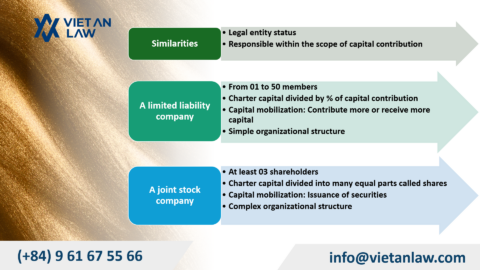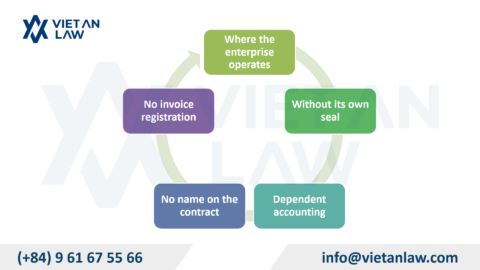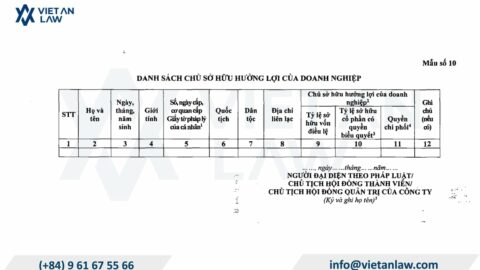Unlock your team’s potential with tailored on-site accounting training in Vietnam, designed to enhance financial skills and ensure compliance in a rapidly evolving business landscape. The deepening of international economic integration along with the impacts of the Industrial Revolution 4.0 have deeply affected the Vietnamese economy. The new context brings the accounting industry many opportunities and favorable opportunities for development and innovation, but also poses many difficulties and challenges. In the market economy, opening up integration, accounting is not only a tool for economic and financial management and provides useful and reliable information for management and business decisions, but also supports business management, which is important in each country. in the region and the world. However, at present, accounting training only stops at intensive training in theoretical content, standards, basic principles of accounting, there are not many practical programs to approach real situations. Therefore, improving the quality of accounting training, especially on-site accounting training to meet the requirements of the new context, is extremely important and has high practical significance.

Table of contents
Accounting is the department that collects, records, processes, controls and provides financial and economic information of an enterprise. This includes activities such as financial reporting, revenue and expenditure management, financial data analysis, risk assessment, and budget management.
The purpose of accounting is to ensure that the financial activities of the enterprise comply with the laws and regulations of the regulatory supervisory body. At the same time, ensure that business activities are in line with the organization’s policies. Financial information may also be used to respond to requests from stakeholders, such as shareholders, investors, tax authorities, and other business partners.
Accounting plays a particularly important role in the financial management as well as business activities of enterprises. The role of corporate accountants must be mentioned as follows:
Accounting is one of the important positions for business operations, synthesizing, processing and reporting on books, receipts and expenditures. However, with the current deep economic integration, it has been opening up many job opportunities for employees. Besides opportunities, there are also many difficulties and challenges. As with other professions, accounting is difficult to avoid because accounting services in the region have been unified and complied with common accounting standards, member countries have agreed on the legal framework, narrowed the gap, and recognized the practice certificates of all countries. If the quality of accounting training in the country does not keep up with other countries in the region, the transfer of high-quality accounting human resources from other countries to Vietnam will be a big challenge in accounting training. Therefore, it is necessary to carry out accounting training, especially on-the-spot practical training so that accountants are exposed to practical problems.
Good analytical skills are one of the important characteristics of a successful accountant. Analytical skills are useful for problem-solving, making business decisions, and making recommendations to customers and management. All of this can be achieved from on-the-job training in accounting. Once the accounting department is able to analyze reports and events well, problems in the business process will be solved more effectively, thereby increasing the revenue of the business.
On-the-job accounting training programs help to better understand the theoretical knowledge that new employees have acquired while attending College and University. For example, they are taught theory of entries, ledgers, test balances, and financial reports, but employees may have difficulty applying theoretical knowledge in real-world situations. The benefit of on-site accountant training is that it allows them to apply theory in practice, thereby significantly increasing work efficiency.
When management focuses on training personnel and building appropriate human resource development training programs, not only accountants, employees in all departments feel that the business is interested in their careers, thereby increasing employee loyalty. This means that the organization respects them and that they feel valued, which in turn fosters a positive work environment and a culture of continuous learning and improvement.
Best practices and accounting industry standards are changing more and more rapidly in today’s world. To ensure employees are up-to-date with their skills, the unit must develop an on-site training program to ensure the workforce and the company will not be left behind and stand out from the competition.
Generally Accepted Accounting Principles – Generally accepted accounting principles refer to a set of general accounting principles, standards, and processes issued by the Financial Accounting Standards Board (FASB). It is important for accountants to have knowledge of regulatory standards related to public and corporate finance to ensure that they meet financial reporting requirements and maintain integrity in their accounting practices
The majority of accounting jobs require the use of regular spreadsheet software and account reconciliation software. Other types of software that general accountants need expertise in include database reporting, financial reporting and analysis, financial reporting, compliance, and project management. If accountants are in charge of tax preparation, they will need to have a thorough knowledge of tax software. Even if employees do not prepare tax returns, they must provide financial information and prepare documents for those responsible for filing. Therefore, the skill of using accounting software to ensure that the work progress is smooth and not stagnate.
For upper-level jobs such as senior accountants and financial analysts, the ability to navigate Enterprise Resource Planning (ERP) software is a required accounting skill. Organizations use ERP software to manage day-to-day business operations such as supply chain, manufacturing, and operations. Knowledge of business analytics software is another big plus when exploring a career in accounting as it takes raw data and transforms it into clear, meaningful information to make informed business decisions.
Financial statements record the business activities and financial situation of the organization. The three financial statements that an accountant can prepare when starting a new job are the income statement (profit and loss), the cash flow statement (movement of cash assets), and the balance sheet (real-time review of assets, liabilities and equity). These reports provide the organization with an overview of the organization’s financial health.
With a dense workload, employees sometimes do not know how to arrange their time to complete work on priority and on time. Therefore, a course on time management skills is important not only for accountants but also for employees in all departments
A unit’s financial data is one of its biggest assets. It can inform decisions in almost any area of activity and is crucial for ensuring the continued success of the company. That’s why the ability to compile and analyze financial data is an important skill for accountants. People with knowledge of data query languages will have an added advantage when looking for a career in accounting because of their ability to extract specific information from large volumes of data. Data query skills also enable accountants to identify patterns in business data sets, identify errors, and catch fraud.
Good critical thinking is the ability to look at a problem or a topic from all angles that allows the application of accounting practices to both new and old financial information to identify problems and identify solutions according to ethical standards.
If you have any difficulties or questions related to on-site accounting training, please contact Viet An Tax Agent for the most specific advice.




